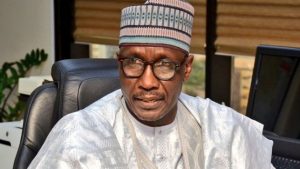The Nigerian state’s non-compliance with disclosure continues to be a challenge confronting its extractive industry transparency. Nowhere does non-compliance happen like the Nigerian National Petroleum Corporation (NNPC), saddled with the responsibility of managing and harnessing Nigeria’s oil and gas.

The non-disclosure by the NPPC in the way it carries out activities in the extractive sector makes it difficult for citizens to have a better knowledge of how the country’s oil and gas is managed and to hold the NNPC and the Nigerian State accountable.
Non-compliance with disclosure is a common practice in NNPC. A pointer case is, recently, NNPC refused to provide the information requested by Divine Era Development and Social Rights Initiative (DEDASRI) and her partner Media Advocacy West Africa (MAWA Foundation) asking it to disclose information about the contract it awarded to Macready Oil & Gas Service Company Limited for the maintenance of Kaduna-Suleja Oil Pipeline and construction of Oil Depot in Kano.
NNPC refused to provide the information requested by claiming that, under the Petroleum Industry Act 2021, it is no longer a public institution, but a private company, and has since ceased to be an agency of government. Hence not under any obligation to respond to FOI requests and be accountable to the public. The corporation further pointed out that it cannot answer questions about its financial transaction dealings regarding contract awards because it is not a financial institution.
Worse still, a visit to the project site NNPC awarded Macready Oil & Gas Service Company Limited shows the oil pipeline has since been left uncompleted at the Una Maraban Rido Area of Chikun Local Government in Kaduna state. Our officials who visited the project site and interacted with community residents found that work has since stopped on site. This is even as efforts to speak to Macready Oil and Gas Service Company Limited were unsuccessful. The company’s telephone contact numbers aren’t going through, and an email sent got no response.
NNPC non-compliance with disclosure in the extractive operations is not new. For instance, in 2018, NNPC refused to comply with an FOI request by Femi Falana to disclose how much it earned and how much was remitted into the federation account under the administration of Mr. Muhammadu Buhari, former Nigerian president. A practice that has made it difficult for Nigerians to know the way NNPC carries out activities in the management of the country’s oil and gas.
Experts who spoke to our officials shared their perspectives on the challenges confronting disclosure and transparency in Nigeria’s extractive industry. For instance, Mr. Michael Uzoigwe, former EITI Country Manager for Anglophone Africa, and an expert in the extractive industry, pointed out that despite the availability of laws ensuring disclosure and transparency, the extractive industry has continued to resist disclosure and transparency. He, however, affirmed that attaining disclosure and transparency in the extractive industry is an enormous work that needs collaboration with all strategic stakeholders, judiciary, media, NGOs, and anti-graft agencies.
Our experience in the field, engaging with NNPC regarding disclosure and transparency in the extractive sector, shows a lot of work has to be done by all stakeholders if Nigeria will succeed in this regard. There is an urgent need for investments that will allow for strategic partnerships among the judiciary, journalists, NGOs, development communicators, anti-graft agencies, and funding agencies to achieve a transparent extractive sector in Nigeria. This is urgent because our findings revealed that NNPC resists changes that will bring transparency to the extractive sector.
No doubt Nigeria’s extractive industry can be made to embrace contract disclosure and be transparent. But, to achieve this, we need the participation of strategic stakeholders to design and implement coordinated interventions that will encourage the Nigerian state to promote transparency in the extractive sector.
By Audu Liberty Oseni, MAWA Foundation
This report was supported by a grant from Publish What You Pay
